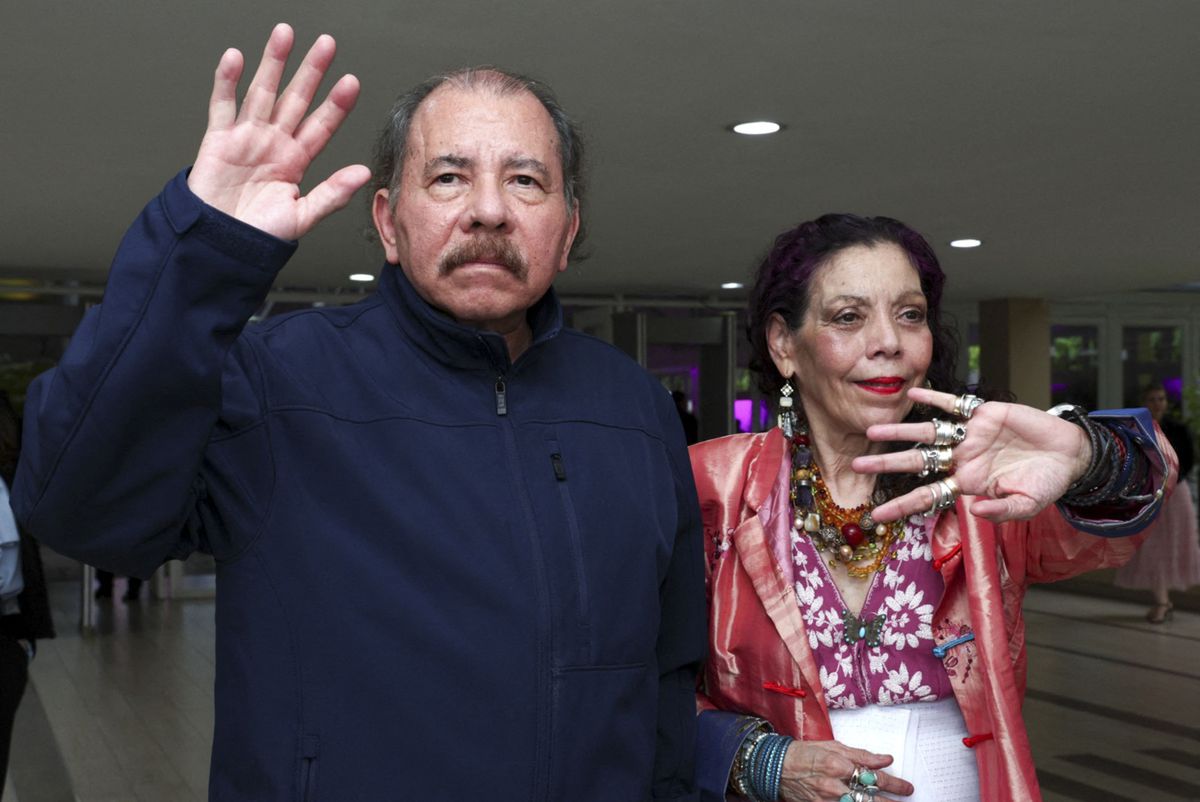The Organization of American States (OAS) condemned the regimes of Daniel Ortega and Rosario Murillo “without objection” this Friday in Washington, where the organization’s 53rd General Assembly was held. Gone are Brazil’s threats to “soften” the resolution on the topic The human rights crisis in Nicaragua Instead, member states unanimously condemned “the continued repression and oppression of political opponents, the media, religious institutions including the Catholic Church” and “charitable organizations such as the Red Cross”.
“The air of our hemisphere must be free of the plague of oppression. Oppression of the rights of individuals and our communities must act unflinchingly in defense of freedom, leaving little room for those who seek to control them,” said Ronald Sanders, Permanent Representative of Antigua and Barbuda and one of the promoters of the initiative. The resolution calls for an end to all human rights abuses and respect for civil and political rights, particularly religious persecution. The OAS, as in past resolutions, “rejected harassment against journalists, the media and non-governmental organizations, respecting their right to freedom of expression and peaceful assembly.”
This final version of the resolution was reached after several negotiation meetings between the member states that proposed the document, after it became known that Brazil had sought to soften the language of the original proposal. Brazil’s delegates initially proposed changes to a draft resolution that addressed human rights abuses and deleted an article highlighting the exodus of thousands of Nicaraguans since 2018, a year of massive social protests that rocked Arteaga. Murillo administration.
After negotiations between member states and rejected by Nicaraguan opposition abroad, especially those nationalized by the regime, the Brazilian delegation to the OAS modified its changes and the final draft was adopted. The approval was given this Friday. Former Nicaraguan ambassador to the OAS, Arturo McFields, who resigned his post in 2022 in protest against the Ortega government’s actions, celebrated the final resolution as a “victory.” “The truth won because Brazil failed to create a false narrative about the country’s situation. Even if Ortega wants to forget about the OAS, the organization is not going to forget about Ortega, and therein lies the main victory,” McFields emphasized.
In November 2021, Ortega-Murillos announced the withdrawal of Nicaragua from the OAS, under the charge that it “does not have a people who will accept the plans”, referring to the sentences that the organization has consistently formulated since 2018. The withdrawal process will last for two years and will come into effect next November. The Sandinista regime later raided and confiscated the OAS offices in Managua.
“High Level Conversation”
Join EL PAÍS to follow all the news and read without limits.
Register
What remains of Brazil’s proposals is to “call on member states to do everything to encourage the Nicaraguan authorities to engage in dialogue at the highest level”. While the General Assembly was taking place in Washington, President Luiz Inacio Lula da Silva announced that he would intercede with the Ortega-Murillo family after he sentenced Bishop Rolando Alvarez, one of the main figures of the repression, to 26 years in prison. They were stripped of their nationality in February after refusing to be deported along with 222 other critics of the regime. The Brazilian president announced the initiative this Thursday in Rome, the day before Pope Francis welcomed visitors to the Vatican.
Political analysts doubt that Ortega will listen to Lula, as Managua has repeatedly rejected various bridges of understanding proposed by the international community via the OAS, the Vatican, leftist governments and the United States.
The representative of Antigua and Barbuda acknowledged that the OAS had repeatedly extended its hand to the Nicaraguan government: they had offered assistance to restore democracy and its fundamental principles. Unfortunately, however, these efforts met with disdain. Instead of progress, we saw the erosion of democratic values and political and human rights,” lamented the diplomat.
“It is our duty to use our individual and collective influences to establish Nicaraguan authorities to participate in dialogue. We call on all member states to do so in the hope that the Nicaraguan government will respond positively before ending the conflict in the interests of the Nicaraguan people and in the public interest of Nicaragua,” Sanders said.
The approved resolution mandates the OAS Permanent Council to “continually address the political and human rights situation in Nicaragua and receive updated information from the Inter-American Commission on Human Rights (IACHR) and other expert bodies.” “It shall consider all additional measures conducive to the effective implementation of representative democracy, the rule of law and the protection of human rights in the country,” states the member states.
Follow all international information Facebook And Twitteror inside Our weekly newsletter.


:quality(85)/cloudfront-us-east-1.images.arcpublishing.com/infobae/3AUKGTK6SBCF5JKFBL3MUCYYSE.jpg)

:quality(85)//cloudfront-us-east-1.images.arcpublishing.com/infobae/XHTW5BVVJNHU7EUE2AOIQOTBPQ.jpg)
